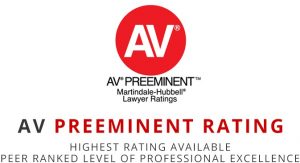Is Bankruptcy Right For You?
For many Americans, bankruptcy protection is the last resort when they have struggled with mounting debt and don’t see a light at the end of the tunnel. In many cases, those filing bankruptcy weren’t besieged with excessive liability because of reckless spending. They may have found themselves in circumstances that were beyond their control, such as a job loss or illness. In any case, filing bankruptcy gives them a fresh start.
But is bankruptcy the right solution for you?
When a court has granted bankruptcy protection to a debtor, the debt is discharged and the debtor is released from personal liability and the creditor is prohibited from taking further action to collect the unpaid balance. But it’s important to understand that there are several variations of bankruptcy protection.
Regardless of which bankruptcy option you and your attorney feels is best for you, there are several debts that are non-dischargeable and the debtor is still responsible for repayment.
According to the United States Courts they include:
- Tax claims
- Alimony and child support
- Debts for willful and malicious injuries to person or property
- Debts to government units for fines and penalties
- Student loans
- Debts for personal injury caused by a motor vehicle accident in which the debtor was driving under the influence of drugs or alcohol
- Debts to tax-advantaged retirement plans
- Debts for condo or co-op housing fees
Chapter 7
Chapter 7 is the most common form of bankruptcy and allows for the liquidation of assets and gives the proceeds to the creditor. Debts discharged as a result of chapter 7 include:
- Credit cards or unsecured loans
- Debts from a vehicle accident if you were not under the influence of drugs or alcohol
- Medical bills
- Lawsuits and judgments from collection agencies
- Evictions and past due rent payments to a landlord
- Utility bills
- Foreclosed homes in which the lender is charging the difference in property value versus past due balance back to the debtor
Chapter 13
Being granted a chapter 13 bankruptcy by the courts helps debtors save their home from foreclosure. In this situation the past due balances are readjusted and a payment plan over 3-5 years is negotiated with the creditor.
To determine which form of bankruptcy is right for you, you should discuss your financial situation and your options with your attorney. Some questions you might want to ask him:
- Should you file Chapter 7 or Chapter 13 bankruptcy and what are the implications of both?
- What are the non-dischargeable debts that you will still be responsible for?
- What will happen when creditors are demanding payment?
- Will I lose my home once the bank has started a foreclosure?
- Can creditors seize my bank accounts or a portion of my paycheck?
For more information and to schedule an appointment with an attorney, call Adams and Associates at 1-888-724-9860.


